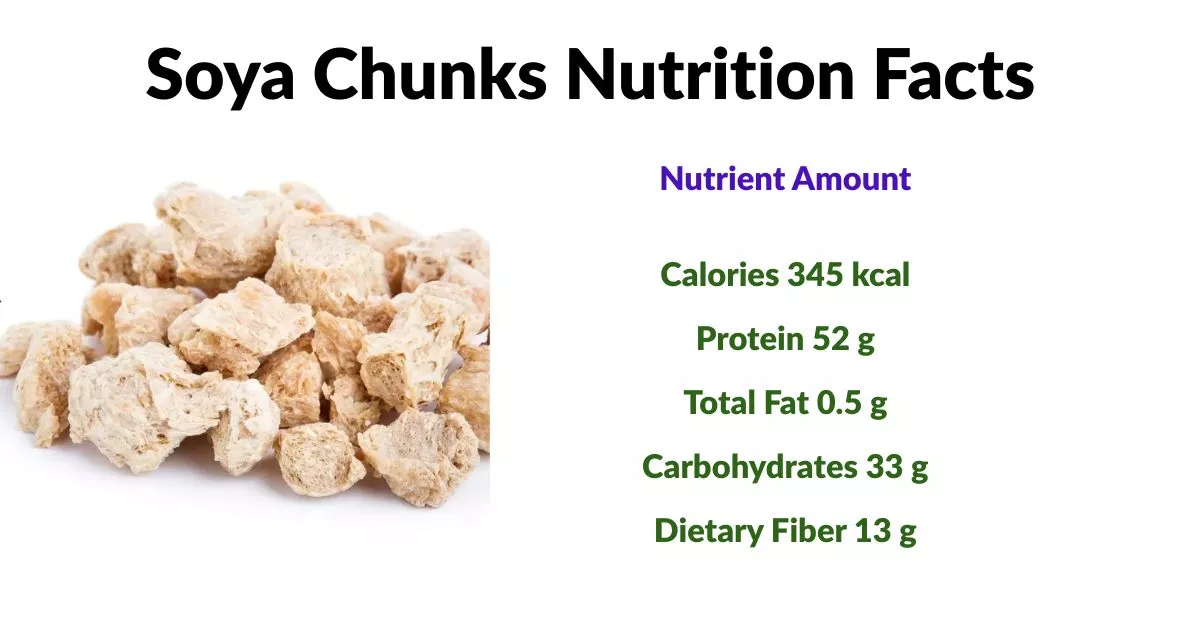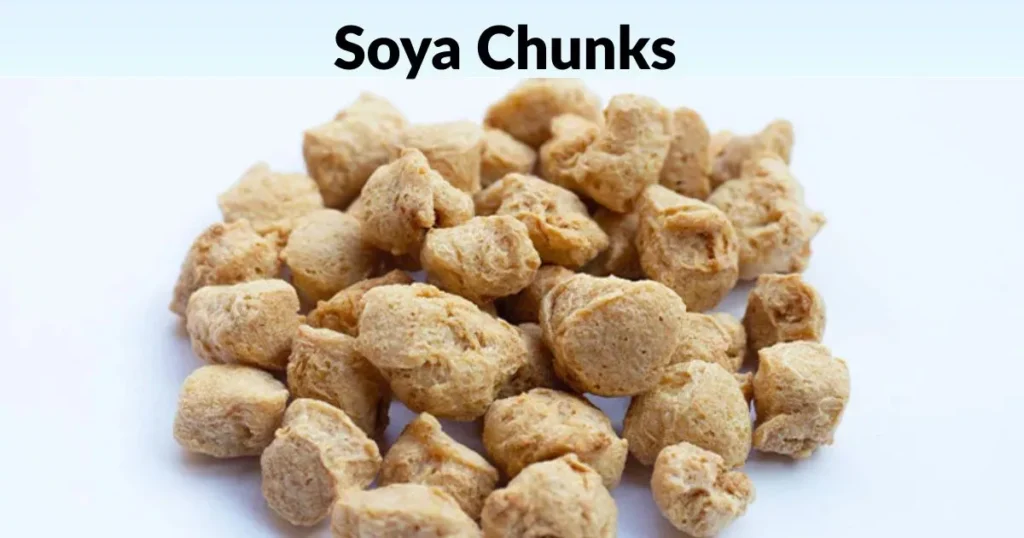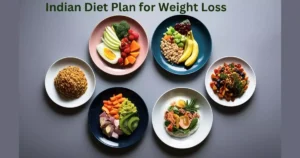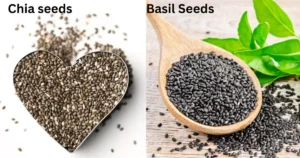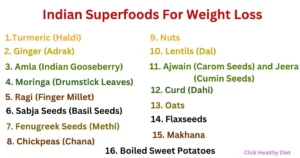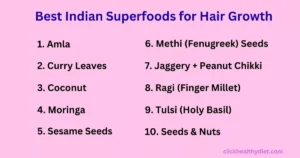Introduction
New to soya chunks? You’re in great company. Millions around the world now rely on this affordable, plant-based protein to fuel their daily meals.
In this article, we break down Soya Chunks Nutrition Facts in clear, simple terms.
You’ll learn exactly what’s inside one serving, how it supports your health, and why soya chunks are a smart choice for vegetarians, vegans, fitness enthusiasts, and budget-conscious eaters alike.
All nutritional data is backed by science and peer-reviewed research. Just facts. Real science. Easy to understand.
Read More: How to Boost Energy Levels Naturally: 5 Proven Tips
What Are Soya Chunks?
Soya chunks, also known as textured vegetable protein (TVP) or soya nuggets, are a powerhouse plant-based protein made from defatted soybean flour. After extracting oil from soybeans, manufacturers transform the leftover protein into dry, sponge-like chunks using a process called extrusion.
These porous nuggets soak up water and flavours like a sponge—turning into juicy, meat-like bites once cooked. In fact, one cup of hydrated soya chunks can mimic the texture of chicken or mutton at 70–80% less cost.
India’s total consumption of soybeans was 136 lakh tonnes in 2021-22, according to the International Grains Council data. Indians consume soya chunks, making it one of the most popular vegetarian protein sources in the country.
Soya Chunks Nutrition Facts: Per 100g (Dry Weight)
| Nutrient | Amount |
|---|---|
| Calories | 345 kcal |
| Protein | 52 g |
| Total Fat | 0.5 g |
| Saturated Fat | 0 g |
| Carbohydrates | 33 g |
| Dietary Fiber | 13 g |
| Sugars | 0 g |
Soya Chunks Nutrition Facts: Per 1 Cup Hydrated (≈100g cooked)
Discover Soya Chunks Nutrition Facts explained simply for beginners, including dry vs cooked values. Learn what 100g cooked contains—calories, protein, carbs, fibre, fat—plus key micronutrients like iron, calcium, magnesium, B-vitamins, and more. Beginners often confuse dry vs cooked values. After hydration (1:3 water ratio), one cup of cooked soya chunks weighs ~100g and contains:
| Nutrient | Amount |
|---|---|
| Calories | 80–90 kcal |
| Protein | 12–15 g |
| Carbohydrates | 8–10 g |
| Fiber | 3–4 g |
| Fat | <1 g |
Soya Chunks also contain a significant amount of micronutrients like Iron, Calcium, Magnesium, Phosphorus, Potassium, Zinc, Vitamin B1 (Thiamin), Vitamin B6, and Folate.
Health Benefits of Soya Chunks
Understanding the Soya Chunks Nutrition Facts reveals why this plant-based protein is a smart choice for vegetarians, vegans, and health-conscious eaters.
Packed with high-quality protein, gut-friendly fibre, and essential minerals, soya chunks offer impressive nutrition at a budget-friendly price.
Whether you’re aiming for muscle gain, weight loss, or balanced meals, they deliver powerful benefits in every bite.
Here’s a breakdown of the top health advantages that make soya chunks a staple in modern vegetarian diets.:
1. High-Protein, Muscle-Building Fuel
Soya chunks pack more protein per gram than eggs or milk—making them ideal for muscle growth, tissue repair, and post-workout recovery.
Perfect for vegetarians, vegans, and anyone looking to boost protein intake without animal products.
2. Supports Weight Loss
Low in calories and fat when cooked, soya chunks offer a winning combo of high protein + high fibre.
This keeps you full longer, curbs cravings, and helps regulate appetite naturally.
3. Excellent Source of Dietary Fibre
Rich in fibre, soya chunks promote smoother digestion, prevent constipation, and support overall gut health.
A happy gut supports better nutrient absorption and immunity.
4. Heart-Friendly Nutrition
Soya chunks contain zero cholesterol and minimal saturated fat.
Regular consumption may help lower LDL (bad cholesterol) and support cardiovascular health.
5. Helps Manage Blood Sugar
With a low glycemic index and high fibre content, soya chunks slow sugar absorption—helping stabilise blood glucose levels.
A smart choice for diabetics and anyone watching their sugar intake.
6. Supports Hormonal Balance
Soya chunks contain plant-based phytoestrogens, which may:
- Ease PMS symptoms
- Support menopausal women
- Improve bone density
Safe for most people when consumed in moderation.
7. Bone Strength & Metabolic Support
Loaded with calcium, magnesium, iron, and potassium, soya chunks help strengthen bones and support a healthy metabolism.
Great for active lifestyles and ageing bodies alike.
8. Good for Hair & Skin
Soya chunks are rich in Protein, iron, and essential nutrients that support better hair growth, improved skin elasticity, and a natural glow.
A beauty boost from the inside out.
9. Boosts Immunity
Soya chunks contain antioxidants, iron, and zinc—all vital for a strong immune system and faster recovery from illness.
10. Budget-Friendly Superfood
Affordable, shelf-stable, easy to cook, and nutrient-dense—soya chunks deliver maximum value for minimal cost.
Perfect for families, students, and meal preppers.
Soya Chunks vs Other Proteins: Comparison Chart per 100g
| Protein Source / Food Item | Calories | Protein | Key Benefits |
|---|---|---|---|
| Cooked Soya Chunks (hydrated & squeezed) | 85 kcal | 15 g | High plant protein, great for weight loss, zero cholesterol |
| Paneer (homemade/low-fat) | 265 kcal | 18 g | Rich in calcium, supports bone health, and helps in muscle gain |
| Boiled Eggs (2 whole ≈100 g) | 145 kcal | 12.5 g | Complete protein, nutrient-dense, boosts metabolism |
| Chicken Breast (boiled/grilled) | 165 kcal | 31 g | Highest lean protein, best for muscle building & fat loss |
| Greek Yoghurt (100g) | 59–100 kcal | 10 g | Gut-friendly probiotics + protein |
| Lentils (100g cooked) | 116 kcal | 9 g | Good plant-based iron, digestion-friendly |
Potential Side Effects of Soya Chunks
While Soya Chunks Nutrition Facts highlight their impressive protein, fibre, and mineral content, it’s equally important to understand how your body might respond.
Soya chunks are generally safe and highly nutritious, but a few considerations matter—
- Digestive Issues: Excess fibre may cause bloating or gas—start with ½ cup cooked.
- Allergies (Rare): Some may react to soy proteins (itching, breathing discomfort).
- Thyroid Concerns: Safe for hypothyroid patients if iodine intake is adequate and soya chunks are cooked well—keep a 3–4 hr gap from thyroid medications.
- Kidney Load: Excess protein may stress kidneys—limit to 50–75g/day.
- Processed Nature: Rinse before cooking; Always soak or boil soya chunks before cooking, this removes their raw smell and softens the texture for better taste and digestion.
Tips:
Soy does not cause infertility or hormonal imbalance. Moderate intake is safe and beneficial.
10 Delicious Meal Ideas with Soya Chunks
If you’ve explored Soya Chunks Nutrition Facts, you know they’re a protein-packed, affordable superfood. To help you use them daily, here are 10 delicious, easy meal ideas. Ideal for vegetarians and fitness-focused eaters, each recipe delivers taste, fibre, and essential nutrients.
1. Soya Chunks Pulao
A fragrant one-pot rice dish with soft soya chunks, veggies, and aromatic spices. Light, filling, and ideal for weight-loss lunches. High in Protein, vegetarian and perfect for a quick meal.
2. Soya Chunk Curry
Rich, creamy curry where soya chunks absorb flavourful Indian spices. Perfect with roti or rice. Great option for boosting daily protein intake and keeping you full for longer
3. Soya Chunk Stir-Fry
Quick stir-fry with peppers, onions, and pan-fried soya chunks. A low-fat, high-protein dinner option. Ideal for quick, yummy dinners or post-workout meals.
4. Soya Keema (Veg Keema)
Minced soya chunks cooked with peas, garlic and spices. A meat-free vegetarian keema alternative for wraps, pav, or rice that’s protein-packed, flavorful, and perfect for a healthy meal.
5. Soya Chunks Biryani
Layered biryani with marinated soya chunks and spiced rice slow-cooked to perfection. Aromatic, satisfying, and high-protein make this a delicious yet healthy weekend meal choice.
6. Soya Chunk Salad
Soft soya chunks tossed with crunchy veggies, herbs, and lemon. Light, refreshing, protein-rich rich and great for weight loss.
Excellent for weight loss and perfect as a guilt-free vegetarian lunch bowl.
7. Soya Chunk Cutlets
Crispy cutlets made with mashed potatoes, spices, herbs and soya chunks. Air-fry for a healthier snack, perfect for tea time.
8. Soya Chunk Wrap
Whole-wheat wrap filled with spicy soya chunks, veggies, and yoghurt dressing. Balanced with protein, fibre, and healthy carbs and a portable healthy lunch idea.
9. Soya Chunk Soup
Warm, comforting soup with tender soya chunks, veggies, and mild spices. Light yet nourishing, perfect for dinner, packed with protein and fibre.
10. Soya Chunk Fried Rice
A quick fried rice tossed with mixed veggies and soy sauce with protein-packed soya chunks. Great for using up leftover rice and a great option for busy days when you need a fast, satisfying meal.
Conclusion: Why Soya Chunks Deserve a Spot in Your Diet
A closer look at Soya Chunks Nutrition Facts reveals why this humble ingredient has earned global popularity. With 52g of protein per 100g (dry), zero cholesterol, and a rich micronutrient profile, soya chunks deliver exceptional value—especially for vegetarians, vegans, athletes, and budget-conscious families.
From supporting muscle growth to aiding weight loss and heart health, the science is clear: soya chunks are a versatile, nutrient-dense protein source that fits almost any lifestyle.
Start small—hydrate ½ cup, add it to your next stir-fry or curry, and feel the difference.
Ready to try? Grab a pack and fuel your health—one bite at a time.
Frequently Asked Questions (FAQ)
1. Are soya chunks keto-friendly?
Soya chunks aren’t keto-friendly, but they can work in small amounts—especially for plant-based eaters. Just be mindful of net carbs. Use sparingly cooked soya chunks.
2. Can diabetics eat soya chunks?
Yes! Soya chunks are diabetic-friendly: low GI, high fibre & protein, stabilise blood sugar, and cause almost no blood sugar spike
3. How long do dry soya chunks last?
Dry soya chunks last 2–3 years when stored in an airtight container in a cool, dry place away from moisture and sunlight. Check for an off-smell before use.
4. Are soya chunks processed food?
Soya chunks are a minimally processed food, not ultra-processed. They’re made only from defatted soybean flour through extrusion no additives, preservatives, colours, or flavours in good brands. Safe and healthy for daily use.
5. How much protein is in 100g of soya chunks?
Dry soya chunks contain approximately 52g of protein per 100g, making them extremely protein-dense. Once hydrated, their weight increases, and 100g of wet soya chunks provides around 15g of protein, depending on soaking and cooking method.
References
Benefits and Considerations of Soya Chunks
Health Benefits of Soy
Soy and Health Update: Evaluation of the Clinical and Epidemiologic Literature
